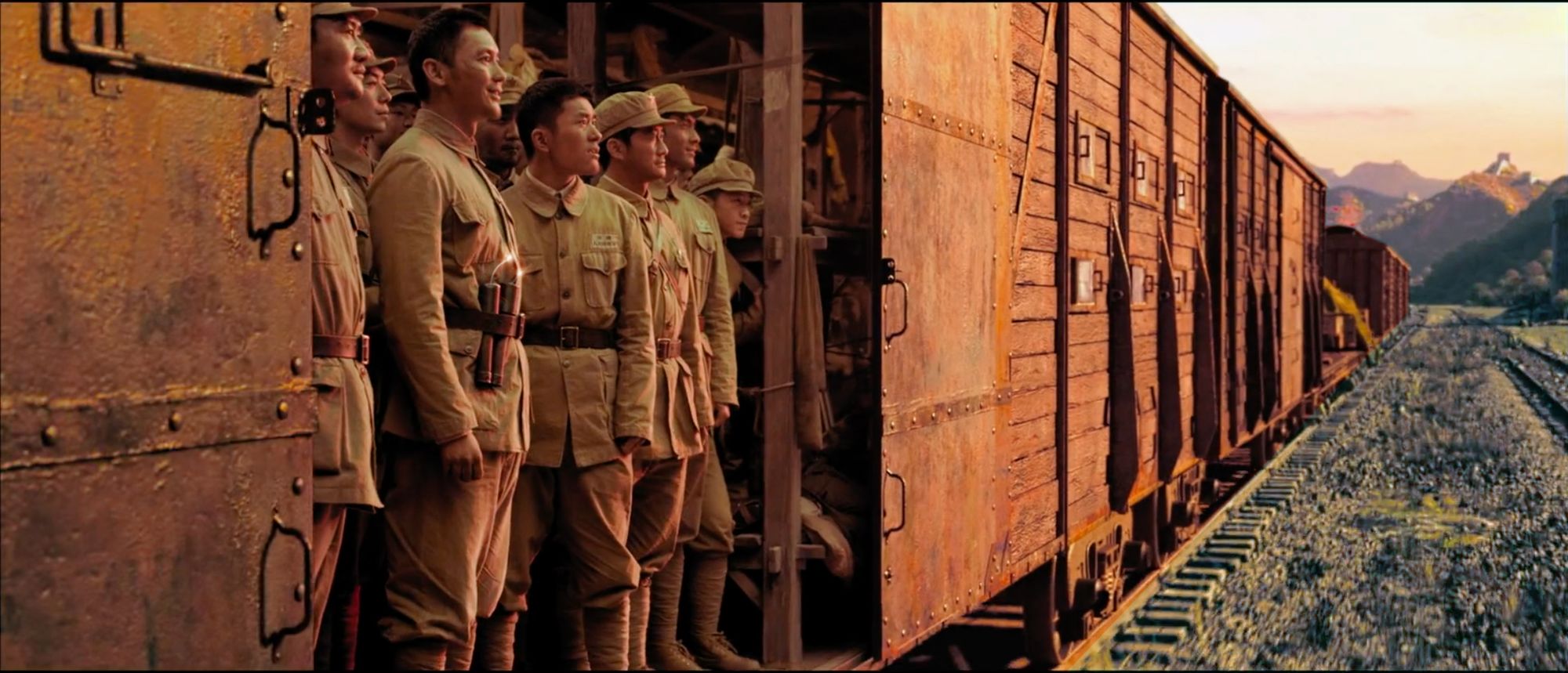Populism or Propaganda?: On The Battle at Lake Changjin

Originally published on 12/01/22 for UK-China Film Collab
The historical epic has long been defined by what some would call an aversion to historical accuracy or perhaps more generously, an unwavering commitment to the sweeping drama at any cost.
They exist in the unsteady realm between propaganda and biopic, being subject to the scrutinizing eyes of a politically aligned public, and not just the critical establishment. This is, of course, not necessarily to its detriment, since situating human strife in the context of real events extracts a pathos weightier than that extracted from similarly flighty fantasy blockbusters. From Saving Private Ryan to Hacksaw Ridge, it’s clear that war in the 20th century is an area with no shortage of auteurs looking towards. At the same time, though, the tradition of the historical war epic is inextricably linked to Hollywood, this is far from surprising, but it remains troublesome nonetheless. The American is not always a figure of glory in Hollywood war epics-in fact, in works such as Eastwood’s Letters from Iwo Jima, they aren’t the focus at all-but the precedent points more towards glorification than it does towards anything beyond a cursory glance at the legacy of the American military.
Yet again, though, applying sweeping generalizations to an entire genre is more reflective of an acceptance of the very value consensus that these war epics promote, than it is of any meaningful critique. The USA is far from the first country to indulge in a celebration of itself via war on celluloid-Eisenstein’s Battleship Potemkin, foundational to contemporary editing techniques in film, is perhaps the most influential of any war epic. As an unabashed propaganda film, its celebration of the Russian Revolution via pioneering the montage technique renders it the furthest thing from an even-handed consideration of a historical event. Yet, Eisenstein’s mastery of cinematic form overshadows any criticisms that could be made of a work that is more symbolic than based on fact.
The Battle at Changjin Lake follows this tradition of sacrificing historical accuracy for heightened drama. At the same time, though, it’s been subject to far more criticism than most Hollywood war epics, on account of it originating from China. The subject of the Korean War is one that few have attempted to tackle, perhaps due to the ideological tensions and inherent biases that arise when one attempts to examine a conflict in which the USA and China fought on opposing sides. Resultantly, the film has been criticized for not supposedly not reflecting the actual course of events. But should that really matter?
The China-based sets are predicated upon the concept of artifice, with the sheen of green-screen backgrounds surrounding highly theatrical performances. Of course, it could be assumed that this is a result of merely heavy CGI usage, but the element of plasticity is central to the contrast between the film’s two distinct halves. The segments set in China are brightly lit, with high shadow contrast indoors and nigh-Imperial set design. The orderliness of the film’s first half, where key Chinese figures-including Mao-are presented regally belies the disruption to its form that takes place with the transition into the second half. Here, co-director Tsui Hark’s fingerprints are clearly present, with increasingly frenetic pacing and jump cuts contributing to the chaos of the battlefield. Moreover, the relative delicacy of the first half, with its opulent landscape pans and vibrant interiors, is reminiscent of Tsui’s own political work, particularly Peking Opera Blues.
It’s also here where Lake Changjin descends to its most morally ambiguous, such as in an indoor confrontation between American and Chinese soldiers, where the comfortingly long barrels of guns are replaced with the flash of knives and blurs of fists. Focusing on the face of a lone Chinese soldier, face splattered with blood and grime as he watches his comrades speared and stabbed, is perhaps the closest Lake Changjin approaches to a critique of the engine of conflict itself. At the same time, these soldiers are afforded their own lives- mementos and anecdotes that make them more than mere extras, even if these are undermined by the coalescence of these figures on the battlefield. There’s a bright-eyed optimism, too, eventually replaced not by despair but by an acceptance of likely death, which is where the film’s potential as a text on the sacrifice of the self in service to the prosperity of a whole is maximized. The kineticism exhibited in these scenes of battle is central to maintaining tension in a film where the audience is well aware of what the conclusion will be – there’s a certain fatalism, almost, to the third act of the film, where it begins to settle into the inescapable tides of history.
Based on Lake Changjin’s formal rigor and commitment to sweeping melodrama, then, one would assume that it would find some favour among the relatively large audience that films like these appeal to- and considering its status as one of the highest grossing films of 2021. Simultaneously, though, its reception has been largely negative among the critical establishment. The Guardian, for instance, termed it “straight-up propaganda”, whilst The Hollywood Reporter claimed that it had “utter lack of interest in anyone other than the clutch of characters at the center of the story". Much of these criticisms arise from the portrayal of the US military in the film: hubristic, ignorant dullards with more confidence than strategic expertise. In a film as celebratory of Chinese nationalism as this one, it’s difficult to overlook these criticisms, especially considering the ways in which what appear to be clashing directorial visions result in a paper-thin narrative. However: jingoistic narratives have been a trademark of the Hollywood engine, ranging from Rocky IV to more recent partnerships between Marvel Studios and the Department of Defense. When a film takes glee in portraying an irrefutably imperialistic leadership as just that-craven warmongers-then is it really any different from the countless American blockbusters that place the military on a pedestal and decry any opposition to the military-industrial complex? I’d argue that not only is it no different, but that it is entirely justified.
